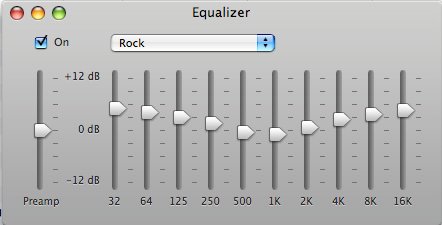Understanding Equalization
I want to start sharing some thoughts about different topics related to audio and music production. The first one is about audio equalization. So, let's get started!
What is equalization?
Equalization is one of the most important processes for audio and music production. The EQ can help you to improve details that were not properly captured in the recording. For example, brightness, clarity, punch, etc.
It is important to say that equalization is not a "magic tool" that you use all the times. In fact, some old-school engineers say that it is preferable not to use equalization at all or use it only when necessary.

The name equalizer refers to making something equal to another thing. This is because, in the beginning, there were technical deficiencies in many microphones. So, the the role of the EQ was to make the recording "equal" to the original sound. Currently, equalizers are still used in this way in professional sound production.
EQ for special effects
The equalizers also play a huge rol on creating special audio effects, such as the "AM radio" effect, telephone, megaphone, small speakers, etc. This is very important for the post-production engineer, for example, as he must try to recreate a realistic acoustic environments in a movie, video game, etc.
The use of an equalizer can solve problems from sound sources or improve them. For example: a person wants a deeper voice and uses equalization to add bass and get that effect. Another one, a female voice that is somewhat irritating can be improved with an EQ.
Equalizers in the mix
Eq's are so important that almost every audio mixer has an EQ on every channel! This gives a fair amount of "power" to the operator to control the sound.
One of the most important applications is to attenuate or filter out certain frequencies that make the sound "dirty". I don't mean removing noise (there are other more specialized tools for this task), but to reduce resonances and frequencies that are annoying to the ear.
I think we've all heard those cymbals or electric guitars that are unpleasant or even hurt. A little of EQ in the right frequencies and problem solved!
In my opinion, good audio should be a delight and an experience that invites us to listening to it. I mention this regardless of the genre, because, although there is music that is aggressive in its interpretation, the sound should be clear, definite and strong, but not unpleasant.
EQ for the room
Another important application is to use de EQ to compensate the response of the room where you are listening. Every room has its own "sound", which depends on the size, materials and shape. In this regard, some rooms tend to accentuate bass frequencies or absorb high frequencies. An equalizer can help to improve this if used properly. This could work for your living room, a club, movie theatre or venue.
Learning the art of equalization: what and how equalize, requires a lot of expertise and a lot of practice. So, equalization is a very important deal for audio engineers and musicians, but with practice, guidance and good ears it is not an impossible task and you can better each time.
Congratulations @gezo21! You received a personal award!
Click here to view your Board of Honor
Congratulations @gezo21! You received a personal award!
You can view your badges on your Steem Board and compare to others on the Steem Ranking
Vote for @Steemitboard as a witness to get one more award and increased upvotes!